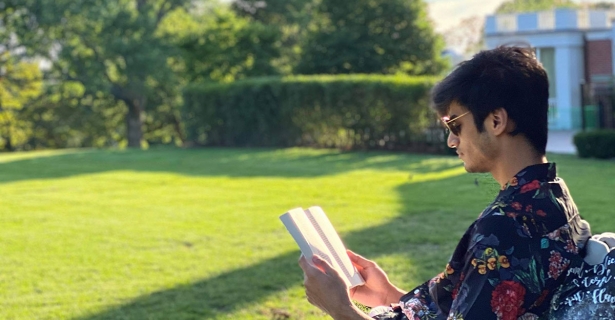This summer, I interned as a research intern at the Woodrow Wilson International Center for Scholars think tank, located in Washington, D.C. I was working under the mentorship of Mr. Michael Kugelman, Deputy Director of the Asia Program and Senior Associate for South Asia.
I was familiar with Mr. Kugelman’s work on South Asia before joining the Wilson Center. He has written and spoken extensively, covering topics from U.S. policy in South Asia to terrorism to water, energy, and food security in the region. He regularly appears as an analyst on local news stations in Pakistan and India, making him a familiar name in South Asian policy circles. I reached out to him for the first time in my freshman summer. He had done work on Pakistan’s water crisis, and I was interested in interviewing him for my summer research project on the same topic. Since then, we kept in touch, and I was delighted when I found out that I would be working with him for my summer internship this year.
The internship was wholly virtual because of the Covid-19 pandemic. However, that was not a barrier to the kind of work I was doing. My primary focus during the internship was researching the Afghan Peace Process. The US and the Afghan Taliban signed the Doha Agreement on February 29, 2020. All eyes were on whether both parties would honor the agreement to make way for the US to finally withdraw its troops from the country. I researched US Congressional documents, budgetary reports on the Afghan National Security Forces (ANSF), and geopolitical implications for post-war Afghanistan. It was enriching to focus on Afghanistan since I had never studied the country in detail from an academic or scholarly perspective.
Aside from Afghanistan, I tracked vernacular local media sources in Pakistan. This was a welcome development and something I thoroughly enjoyed. I couldn’t go to Pakistan over the summer (as I usually do) and keeping track of local outlets made me feel as though I was still in touch with my home country. What was interesting about media tracking was that Mr. Kugelman requested that I track stories that don’t necessarily appear in Pakistan’s mainstream English media. He already had online access to sites like “DAWN” and “The News” (the largest newspapers in Pakistan), and wanted to get a sense of what local, Urdu-speaking outlets were reporting about. This was new territory for me as well. I tracked local outlets that covered Pakistan’s periphery regions: Gilgit-Baltistan, Balochistan, Khyber-Pakhtunkhwa, and Pakistan-administered Kashmir.
Lastly, I spent a considerable amount of time working on an independent essay on water politics in Pakistan. Specifically, I wrote about sugar and water in Pakistan. I argued that the story of Pakistan’s sugar industry, and the subsidy managed for its market and export disposal, reflected horrifically misguided state priorities that burdened the water-insecure country. Mr. Kugelman put me in touch with editors of South-Asia focused platforms, and the essay was published by the South Asia Center at the London School of Economics. Here is a link to the article.
I would thoroughly recommend this internship program to students interested in South Asian affairs and Asia more broadly. Thank you to the Institute of Global leadership for their constant support and patronage.

